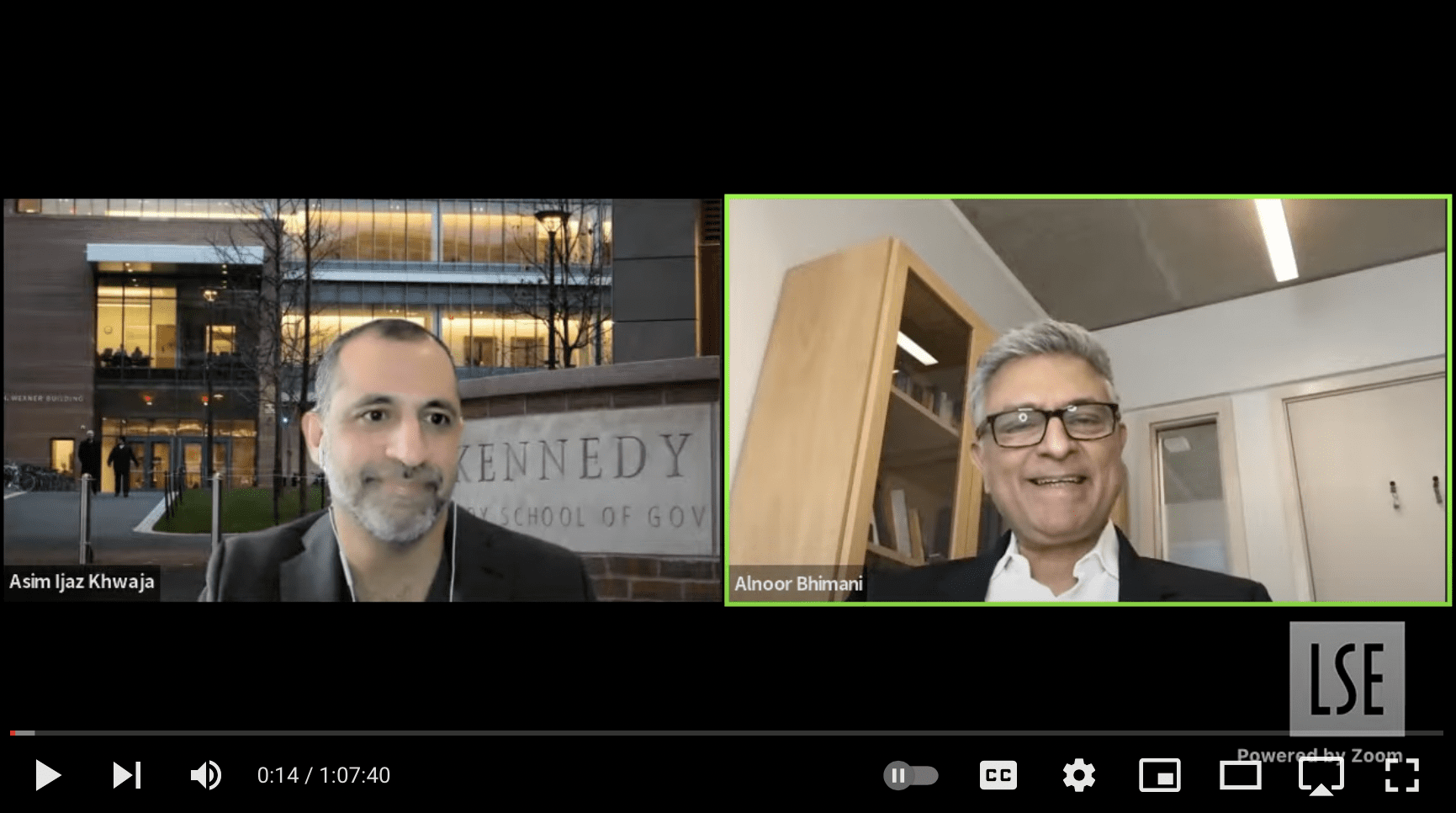Economists provide policy advice at the institutional, country, and regional levels, on a host of pressing issues: climate change, education, financial stability, and more. In the recent talk, “Sound Economics can Enrich Pakistan,” Professor Asim Khwaja explored how successful these economic policies have been to the set of challenges facing Pakistan.
Asim Khwaja is Sumitomo-FASID Professor of International Finance & Development; Director, Center for International Development, Harvard Kennedy School, Harvard University; and a Mittal Institute Steering Committee member. He was joined in conversation by the talk’s chair, Alnoor Bhimani, Director, LSE South Asia Centre and Professor of Management Accounting at LSE.
The event was co-hosted by the Mittal Institute and the London School of Economics South Asia Centre.
Five Key Excerpts from Prof. Asim Khwaja’s Talk
- Sometimes there is a tendency to look at a situation in the context of months or years, or even a few years, but it is important to recognize that Pakistan is a relatively young country and in that life of this young country it has had periods of really solid economic policy making. Is Pakistan currently engaging in sound economic policy? The answer is unfortunately, not so much. But for us, it is not about trying it for the first time – it is about rediscovering what we used to do.
- The biggest threat to me about sound economic policy making is the fact that currently our leaders – and I would argue the leaders of all the parties, not just those in power – have been ignoring sound economic decision making.
- There is a slight danger of thinking top down approaches will work in Pakistan. While I think it is important to have good policy at the higher level, I don’t think it’s a sufficient condition to get growth going.
- There is a larger question here, which is when you think about the span of 50 years, did Pakistan choose the wrong side in that economic modeling or economic policy or strategic partnerships? I don’t think we have enough degrees of freedom to answer that question – there are only three countries and ultimately while we think their trajectories look much more meaningful, when you rewind back, Pakistan looks better than Bangladesh or India. There is a large span in the growth of nations, and 50, 60, 70 years isn’t much to determine who is on top and who is not.
Pakistan weathered the 2005 earthquake and the current floods, and I believe it is going to be the frontline responder on the global climate change battle. . .I am fascinated by how we are responding to that. – Asim Khwaja
- The real question is, even if you’re open [for growth], are you benefitting from the world coming in to you? That is a question of negotiating the right way. So when someone comes in and invests in you, they don’t just use you as a body shop or port – they’re using you but then you become a hub of manufacturing, a hub of production, a hub of productivity. And we’ve often taken these foreign investments in a very excited way, but the last mile could be negotiated to say if you’re coming in, can you retrain our workers, instead of importing your own – lets build our human capital and put ourselves in a position to export our production out. That is one fundamental challenge I have seen missing in Pakistan’s economic growth.
Watch the full conversation on YouTube.

